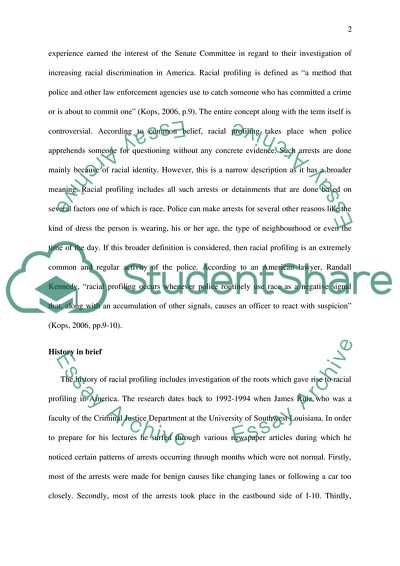Cite this document
(Black Men and Racial Profiling Essay Example | Topics and Well Written Essays - 1500 words, n.d.)
Black Men and Racial Profiling Essay Example | Topics and Well Written Essays - 1500 words. https://studentshare.org/philosophy/1814331-black-men-and-racial-profiling
Black Men and Racial Profiling Essay Example | Topics and Well Written Essays - 1500 words. https://studentshare.org/philosophy/1814331-black-men-and-racial-profiling
(Black Men and Racial Profiling Essay Example | Topics and Well Written Essays - 1500 Words)
Black Men and Racial Profiling Essay Example | Topics and Well Written Essays - 1500 Words. https://studentshare.org/philosophy/1814331-black-men-and-racial-profiling.
Black Men and Racial Profiling Essay Example | Topics and Well Written Essays - 1500 Words. https://studentshare.org/philosophy/1814331-black-men-and-racial-profiling.
“Black Men and Racial Profiling Essay Example | Topics and Well Written Essays - 1500 Words”. https://studentshare.org/philosophy/1814331-black-men-and-racial-profiling.


